Telling your child to hug or kiss a family friend or relative might seem pretty innocent, but a viral meme has stirred up a controversial debate about child consent.
An article entitled “I don’t own my child’s body” was posted along with the below image, arguing that encouraging kids to submit to unwanted affection could leave them vulnerable to sexual abuse.
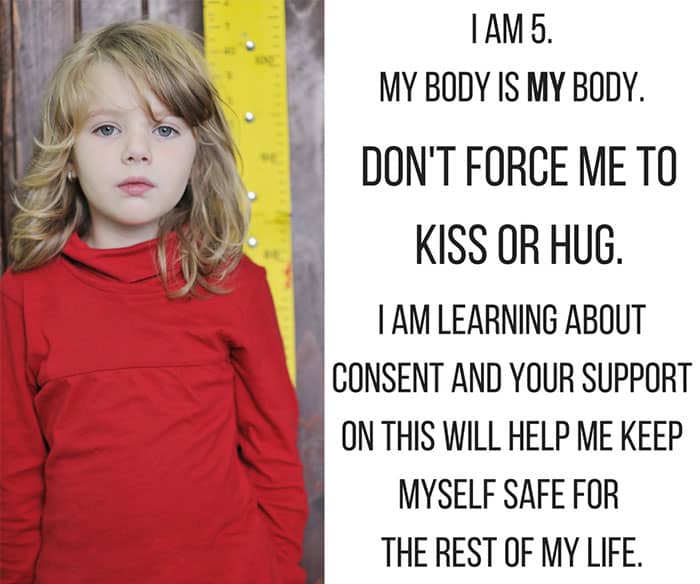
“I am 5,” reads the meme, “My body is my body. Don’t force me to kiss or hug. I am learning about consent and your support on this will help me keep myself safe for the rest of my life.”
The argument is that encouraging kids to greet near-strangers affectionately teaches them that their body doesn’t belong to them, and that they should offer hugs or kisses to please others.
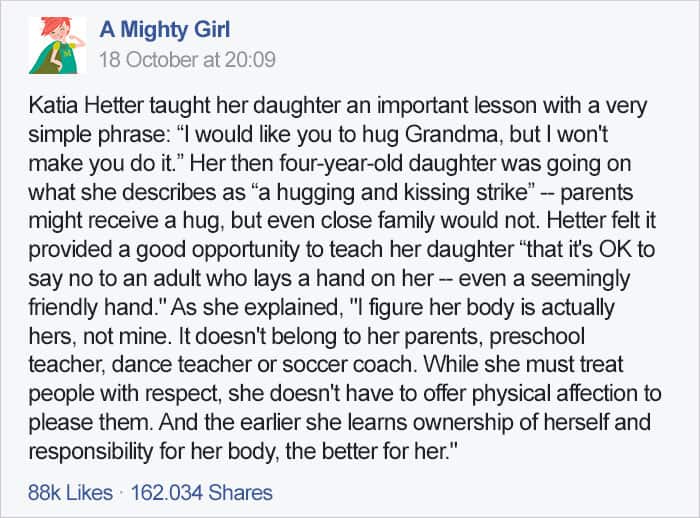
“Forcing physical contact like hugs ‘sends a message that there are certain situations [when] it’s not up to them what they do with their bodies.'”
“Forcing children to submit to unwanted affection in order not to offend a relative or hurt a friend’s feelings, we teach them that their bodies do not really belong to them. They have to push aside their own feelings about what feels right.”
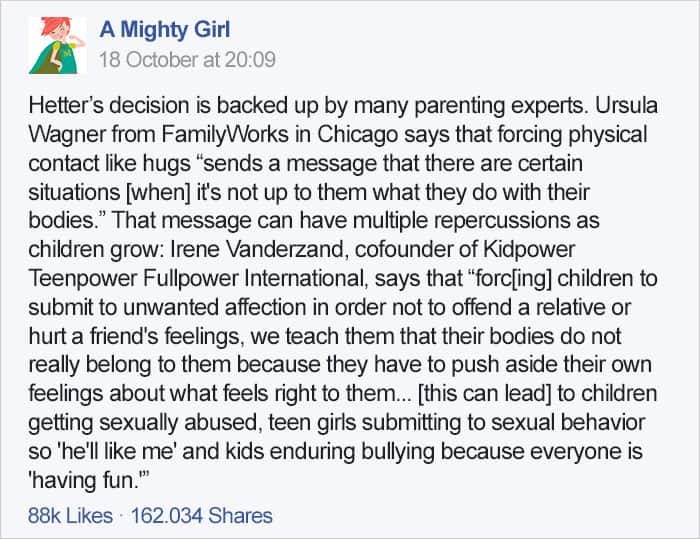
But Hetter insists in the article that refusing hugs doesn’t mean allowing kids to be rude. Speaking about her own daughter, she says, “She has to be polite when greeting people, whether she knows them or not.”
“When family and friends greet us, I give her the option of ‘a hug or a high five.'”
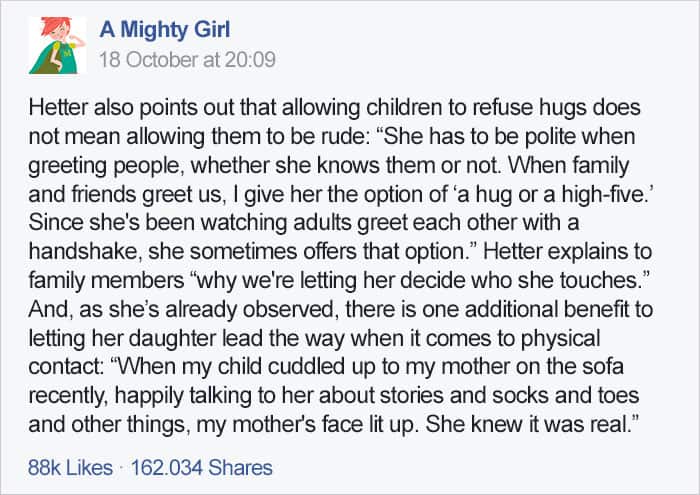
And Hetter says there’s also benefits for the adult, as when a child comes to them of their own free will to cuddle up, it’s genuine and not forced.
Many people have agreed with Hetter’s controversial argument, remembering times they felt uncomfortable as kids.
“I remember having perfect strangers come up to me and just grab fistfuls of my hair,” wrote one commenter, “I hated it, but I was always scolded for being rude if I ever tried to pull away.”

And others have shared their own examples of finding ways to make children who are uncomfortable showing physical affection to strangers feel comfortable.
“I kneel down eye level to the child and tell him that I don’t like hugging strangers either, and said how about a high five instead.”
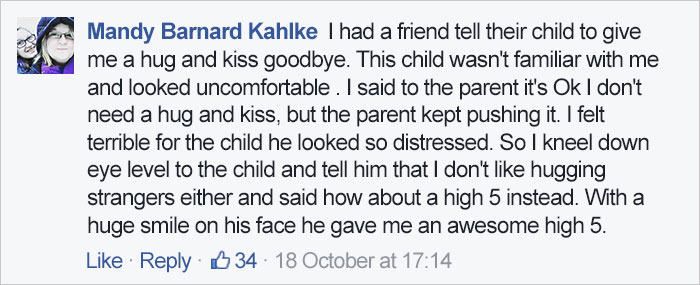
Some were concerned that Hetter’s idea encourages kids to be selfish and think only of how their actions feel to them.
“I would like my kid to know the world doesn’t revolve strictly around them, and that grandma might need a hug too, even if he feels like doing something else,” wrote one woman.

And many supported the “hug, handshake, or high five” idea.
“You must acknowledge someone, but you can do what feels comfortable for you.”


You can read the full article here.
What do you think? Should all children be encouraged to greet relatives and friends with hugs and kisses, or should they be allowed to refuse?

